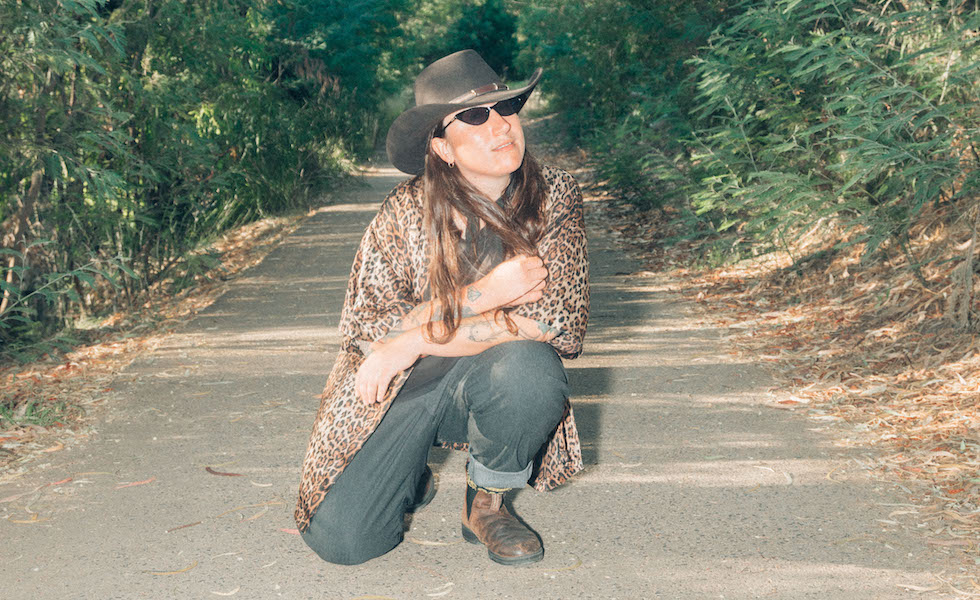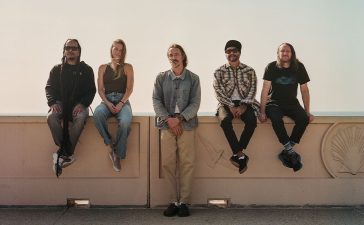They say that true beauty will never seek attention – it just gets it. This applies in no subtle way to the debut eponymous album from Naarm’s Rin McArdle.
Created and formed in the mind of McArdle, that was where the collection of songs was expected to exist – far from the ears of anyone else. With some prodding from her inner circle, McArdle decided to release it to the masses, giving us a glimpse into something that was truly unobserved, and therefore truly unfucked with by things like expectations, metrics, charts or any of those icky things that inevitably impact the final product.
From the opening looping, twangy guitar chords of starter ‘Splinter’, it’s clear we’re under attack of raw, uncomfortable emotion – granted, it might take some until the introduction of the dear-diary lyrics, but either way, at some point throughout the album, it becomes a searing tryst with honesty.
Testament to what can be done with timber and steel, McArdle has created a vivid, thorough world with enough spaces to get lost between. This isn’t an escape. It’s an ice bath; the only way to get out of it, is to first get into it.
And into it we got …
You have a lot of experience writing and performing music, but You’ve got your name on this. There’s nothing to hide behind. Does this feel different?
Rin McArdle: Absolutely. It’s an extremely personal record. So personal that I didn’t even record it with the intention of releasing it. A friend of mine, Angie McMahon was like, you should do a record. And I was like, I should do a record.
It was just like therapy, honestly. It scared the fuck out of me when I listened back to it to the point that I was like, I can’t release this. It just felt way too raw and way too personal. It feels like I’m very vulnerable and very exposed. It’s very different, but it feels really good.
Normally I don’t really spend much time on actual album names. They tend to just be an afterthought. But when it’s self-titled, that’s a statement. What was it about this that you thought you were going to stake your name to it, so to speak?
Rin: It’s my first record I produced and played all the instruments on it. But more than that, it’s like my truth as well. It feels like a lot of the record is me saying things that I felt like I couldn’t necessarily say before or that I wasn’t able to say before.
My mom called me once and she was like, Rini, I know what you got to call your album. And I was like, what? And she was like, you need to call it Hear My Pain. I was like … I’ll think about it.
You look at City and Color for example; artists that put a barrier between themselves and the music with a nom de plume. Are you able to protect yourself at all with a barrier? Do you somehow get rid of a little bit of the ownership of Rin because you’re sharing it with the public?
Rin: In my mind, only my friends will listen to it. But that’s what I choose to tell myself. It’s taken a lot for me to get to this point, but I truly am just at a place of like fuck it. I don’t care. I’m not doing anything wrong. I felt really guilty about being so brutally honest. But then I was like, actually no, I’m just telling the truth and that’s okay. And I’ve come to terms with it now. I’m putting it out. It’s going to be fine. Everything’s okay.
What were some of the stories that you didn’t really feel comfortable approaching previously?
Rin: ‘Perpetual Propensity’ is a song that for me, felt like I was being really specific. There’s nothing poetic about it. It’s literally just ‘this is what happened’. That I was the most hesitant to put out
Another song on there called October … ones that are really dark, that I wrote when I was in a dark place. Being on the other side of it now when I listen back I’m like, fuck I was very not having a nice time then. But at the same time, to not include those songs it’s not the truth. It’s not necessarily how I feel now, but it was a moment in time and it’s too late now.
There was no demoing, there was no nothing. You went in, you threw shit around. And what stuck, stuck. On paper, that’s awesome. But in practice, how do you do that?
Rin: I hear how it’s going to sound in my head. So it’s not too scary because I trust myself. And at that time I literally was just making it, for me. It’s like art therapy, it’s like I spent lots of money to go into a studio and just throw paint at a wall. I wasn’t like, I’m trying to do this kind of sound or make this kind of record. I had no idea how any of the songs were going to turn out. But I find that super fun.
With demoing, you’re already censoring yourself. You’re putting limits in what you’re going to do …
Rin: You’re absolutely right. I find it a bit restrictive. It takes you further away from your instincts. Whereas if you’re just like, this is what I feel like I’m going to do. You’re just building. You’re building and building. You have all this stuff and then it’s a little puzzle and you just put things where you want to put them … It’s really fun.






